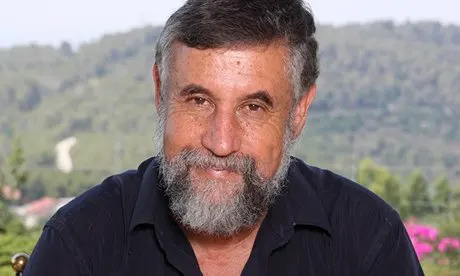
Estimated reading time: 7 minutes
When the world’s best spy agencies come to mind, it’s rare that the Mossad isn’t among them. Israel’s Institute for Intelligence and Special Operations, known domestically as “the Institute” (Hebrew: Mossad), has gained a reputation internationally as fearsome and lethally effective. It’s responsible for the country’s intelligence collection, covert operations, and counter-terrorism. But things don’t always go well for the Mossad. And former agent Mishka Ben-David dramatizes one failed Mossad operation in his extraordinary debut novel, Duet in Beirut. It’s based not on a real incident but is nonetheless solidly grounded in the author’s personal experience in the field. And the story is nothing less than jaw-dropping in what it reveals about how the Mossad actually operates.
The true story behind the novel
According to a review of the novel in the leading Israeli newspaper, Haaretz, Ben-David told British weekly The Observer in 2013 that the Mossad’s ratio of failed missions to successful ones “is about one to 1,000.” (In the novel, he writes that it’s one in several hundred.) “But he had a “special reason to care about a singular event triggering numerous repercussions.” The author had disclosed to a national daily newspaper in Tel Aviv “that he had been part of a five-man Mossad team involved in arguably the agency’s most ignoble failure: the 1997 attempt to assassinate Khaled Meshal, the political head of Hamas.”
In that failed operation, “Mossad agents were caught by the Jordanian authorities in Amman after putting poison in Meshal’s left ear in a street-corner attack, paralyzing him almost immediately. Ben-David said that it was he himself who had to hand over the antidote to save Meshal’s life when the Jordanians threatened to execute the captured spies.” As Haaretz‘s reviewer suggests, that might have made for an even more dramatic novel. But Ben-David’s hands were tied by a confidentiality agreement with the Mossad.
Duet in Beirut by Mishka Ben-David (2002) 300 pages ★★★★★

An assassination that never happens
Ben-David’s story revolves around two special operators, Gadi and Ronen. They’re the best of friends—and Ronen is now married to Gadi’s former long-time girlfriend. Gadi, the elder of the two, commands one of the agency’s three special operations squads. Ronen is one of the about thirty men and women in the squad. They are members of a small team sent to Beirut to assassinate the head of Hezbollah‘s foreign terrorist operations. But everything goes sideways in Lebanon when Ronen, the designated assassin, unaccountably fails to shoot his target, who is standing close by.
As the novel opens, the pair—and all their colleagues in the Mossad, all the way to the top—are struggling to adjust to the failure of the operation, which has gone public in a very big and embarrassing way. And that’s when Ronen, who is held responsible for the fiasco, angrily leaves the agency. After brooding for months, he sets out to kill the man in Beirut to redeem himself. And Gadi frantically rushes off to save Ronen from another catastrophe. The problem is, the terrorist has been promoted into the leadership of Hezbollah, and the Israeli government no longer wants him killed. Because his murder would now set off a furious attack on the people of Israel. Catastrophe.
Revelations about the Mossad
Ben-David refers in passing to “hundreds of staff members” at the Mossad’s headquarters. To “hundreds of missions” each carried out by three operational squads, each of about thirty agents. Missions on five continents to “bolster Israel’s security.” I found these references surprising. I’d thought that tiny Israel, with a population of just nine million, would field a small if famously able intelligence service. But it’s not so, as I discovered with a little digging online.
It turns out that Mossad is the West’s second largest intelligence agency. Its staff numbers 7,000, and it commands a $3 billion annual budget. Only the CIA is larger, with about 22,000 employees and a budget that’s incalculably greater. MI6 employs 3,600. By comparison, the SVR, Russia’s foreign intelligence service boasts 13,000 employees. (However, its military intelligence arm, the GRU, is much larger.) China’s Ministry of State Security, or MSS, appears to have at least 110,000 employees, although an estimated 100,000 of them are deployed within China. (The MSS handles both domestic and foreign intelligence, incorporating the functions of what in the United States is left to the FBI. And it also seems to take on all the functions not only of the CIA but several others among the eighteen American intelligence agencies.)
How the Mossad operates
Ben-David, who was an agent of the Mossad and rose to a senior position in the agency, reveals a great deal about its operations in Duet in Beirut. In telling his tale of a failed Mossad operation, he demonstrates the complexity of contemporary intelligence-gathering and special operations. The James Bond image of the courageous lone wolf operative is a myth. And when Ronen defies the agency he left and sets out to prove otherwise, hundreds become involved in an effort to save him.
On the ground in Lebanon, teams of agents in place scope out the intelligence. In Tel Aviv, hundreds more mobilize. Analysts who scour online sources for vital information. Teams of planners, trainers, and senior-level briefers who prepare a squad of a dozen men who will fly to rescue the wayward agent. Plus the crew of a helicopter to deliver them to Lebanon, and sailors on a ship in the Mediterranean to carry them home if they make their escape by sea. Even the head of the Mossad—and the Prime Minister of Israel. James Bond could get lost in this shuffle.
About the author

Mishka Ben-David is a twelve-year veteran of the Mossad. According to his speakers bureau, he served the agency in the field and in intelligence and command positions from 1987 to 1999. In 1997, during a failed assassination attempt in Jordan on the leader of Hamas, he handed over to the Jordanians the antidote that saved his target’s life, as ordered by his commanders. Ben-David’s service in the Mossad is reflected in his three bestselling spy novels, of which Duet in Beirut was the first. He was born in Israel in 1952 and holds an MA in comparative literature from the University of Wisconsin and a PhD in Hebrew literature from the Hebrew University of Jerusalem. He lives outside Jerusalem.
Ben-David writes in Hebrew. Duet in Beirut was translated from the Hebrew by Evan Fallenberg.
For related reading
This is one of The 21 best books of 2023 and of 26 mysteries to keep you reading at night.
I’ve also reviewed several other books about Israel, including both fiction and nonfiction. Among them are:
- Spies of No Country: Secret Lives at the Birth of Israel by Matti Friedman (An amazing true story of Israeli spies in the country’s War of Independence)
- Israel: A Concise History of a Nation Reborn by Daniel Gordis (A balanced new history of Israel, warts and all)
- The Debba by Avner Mandelman (A superb novel digs for roots in Israel’s modern history)
- Murder Under the Bridge (Palestine Mystery #1) by Kate Jessica Raphael (A young Palestinian cop confronts Israeli corruption)
For an Israeli review of this novel, see “When a Mossad Operation Goes Wrong” (Haaretz, February 8, 2014).
You might also enjoy my posts:
- The 15 best espionage novels
- Good nonfiction books about espionage
- The best spy novelists writing today
- Top 10 mystery and thriller series
And you can always find my most popular reviews, and the most recent ones, on the Home Page.



























